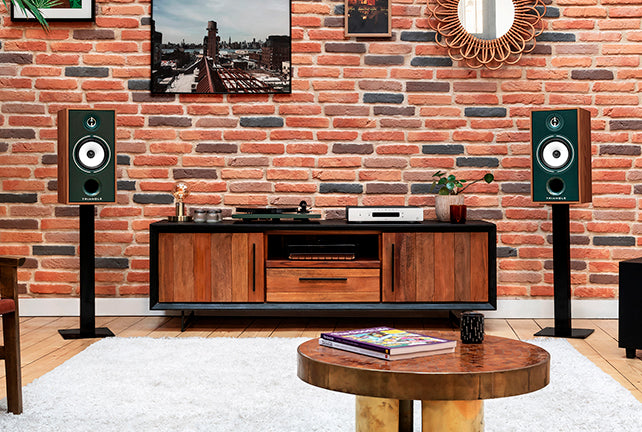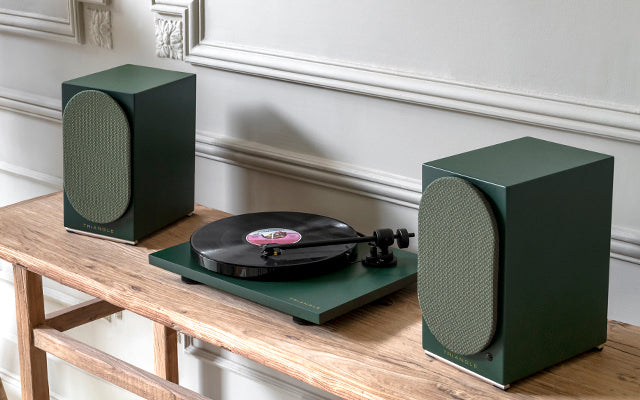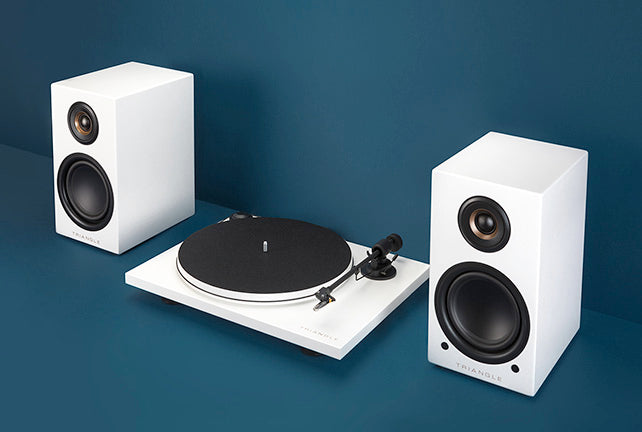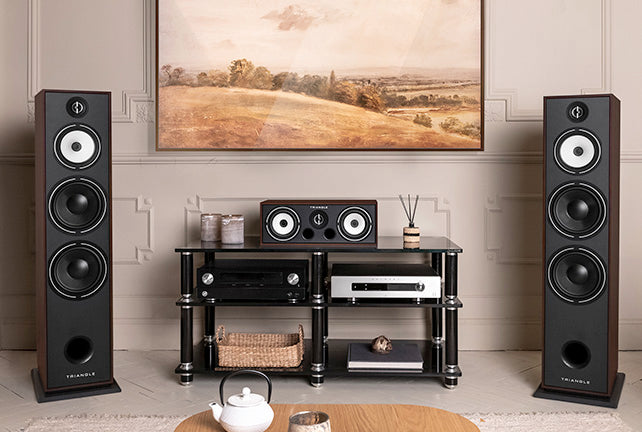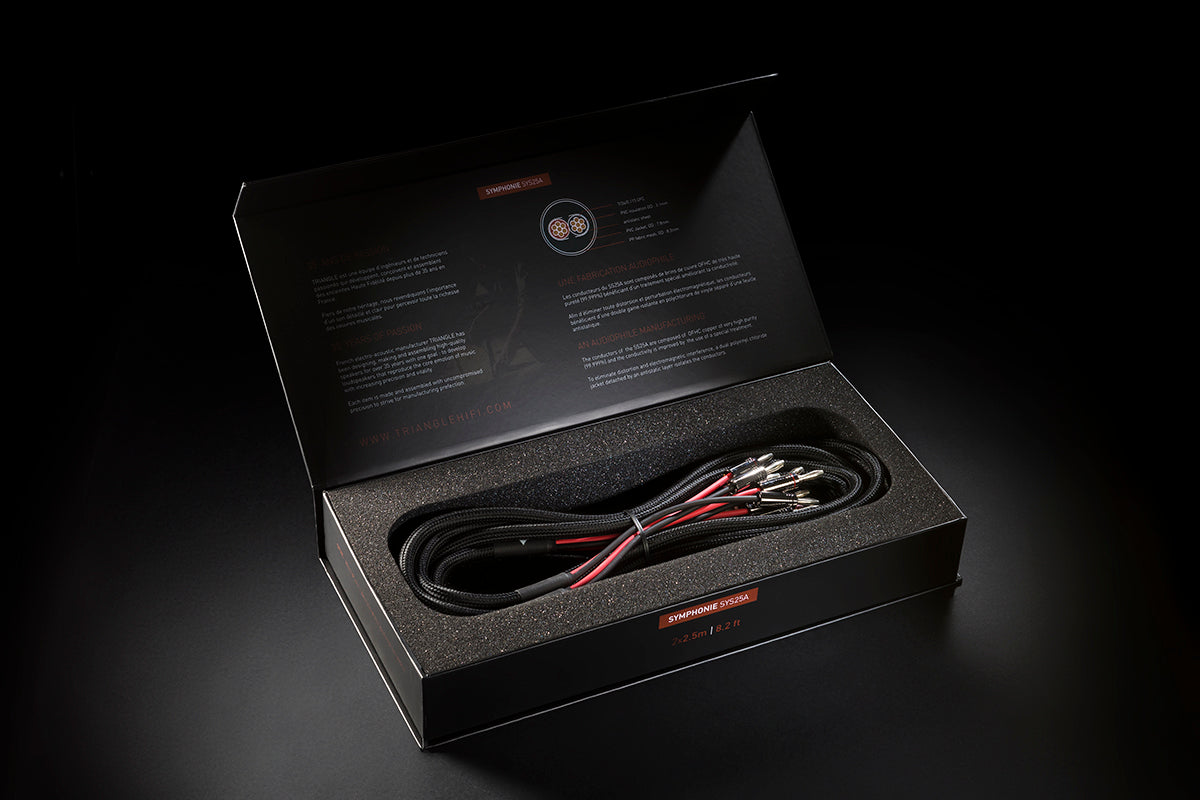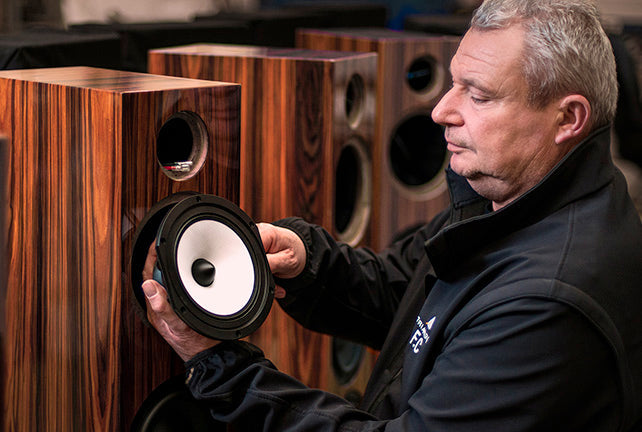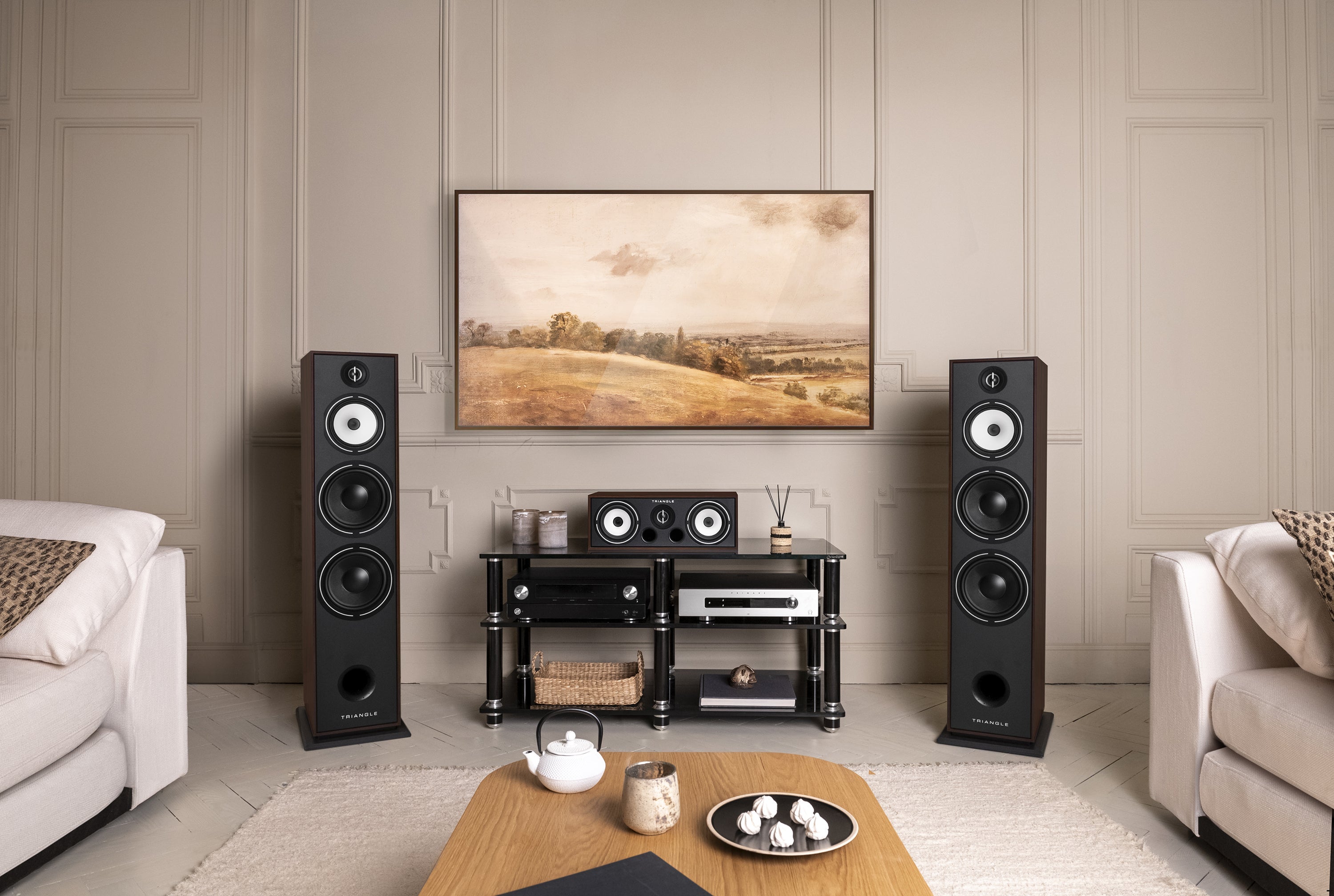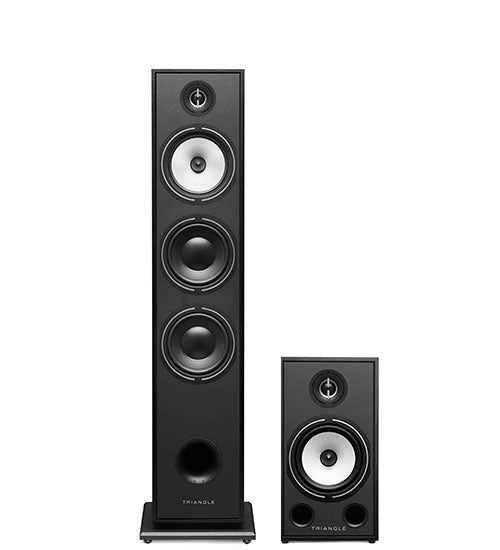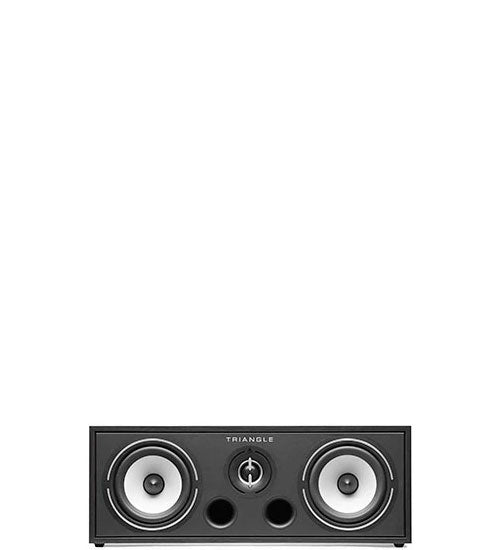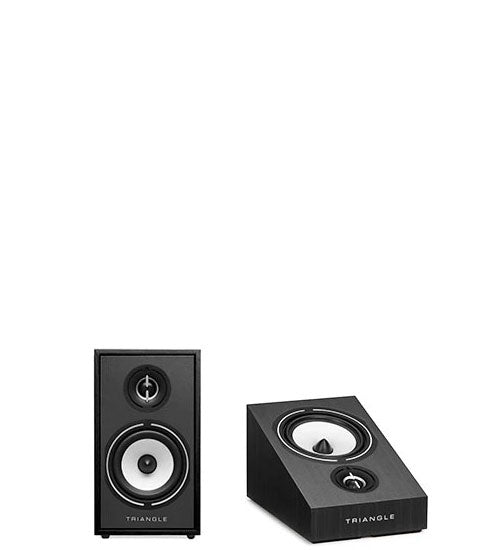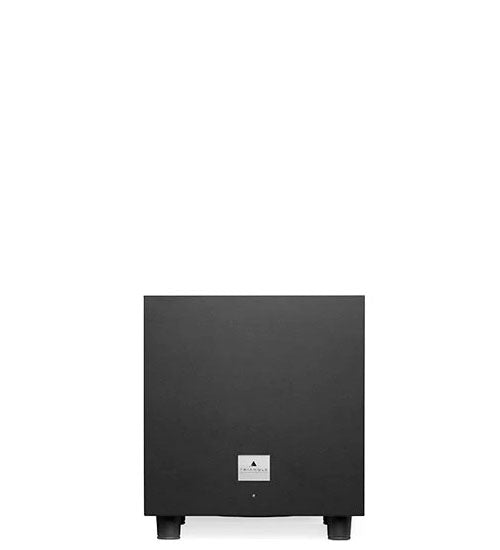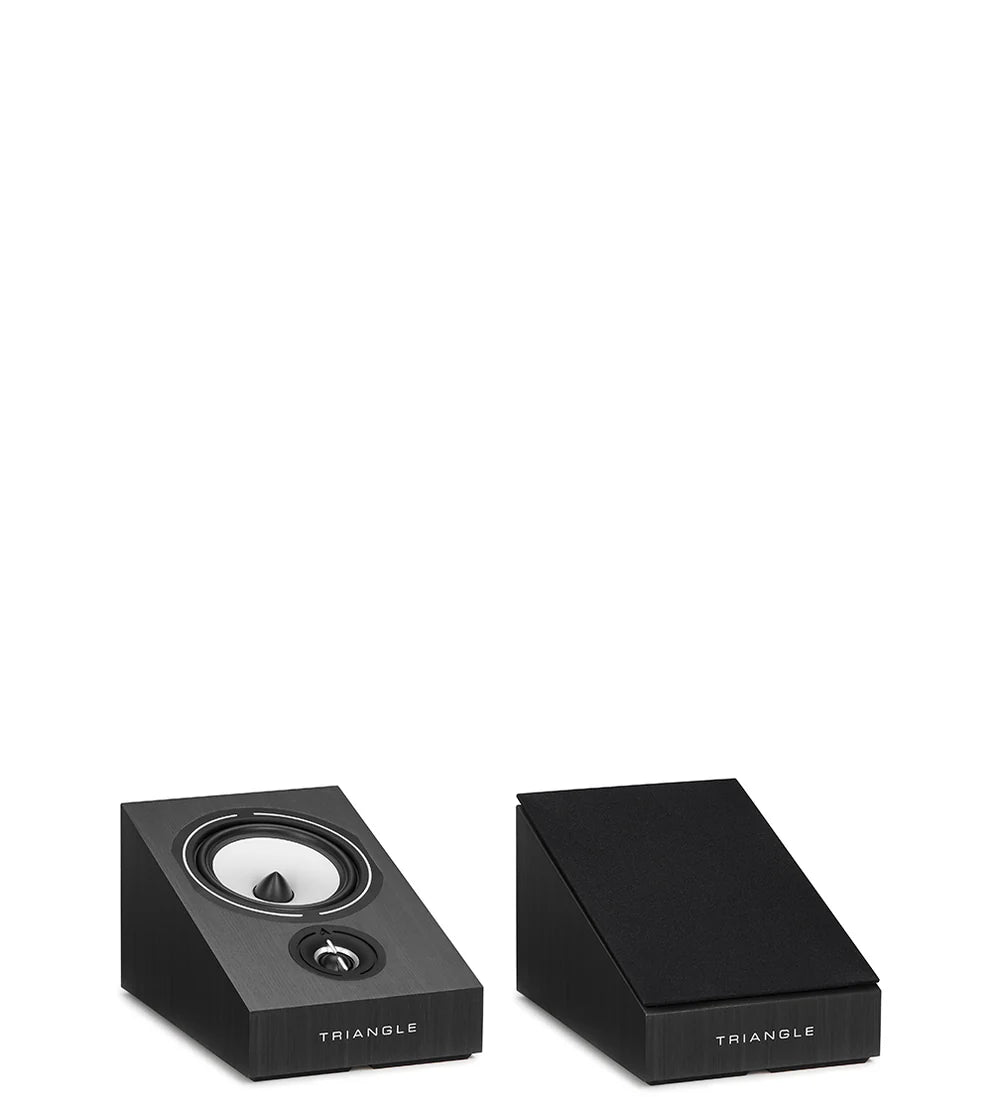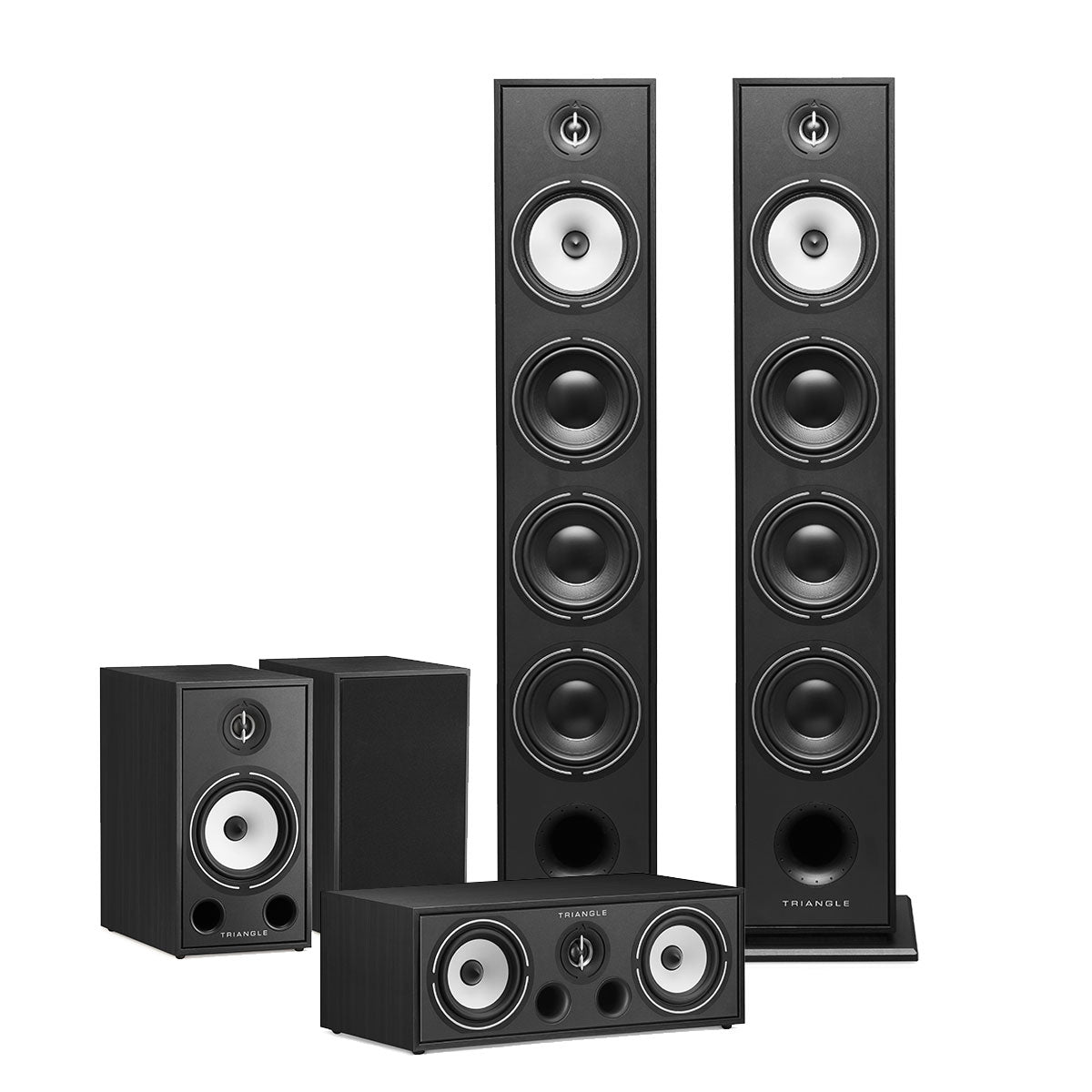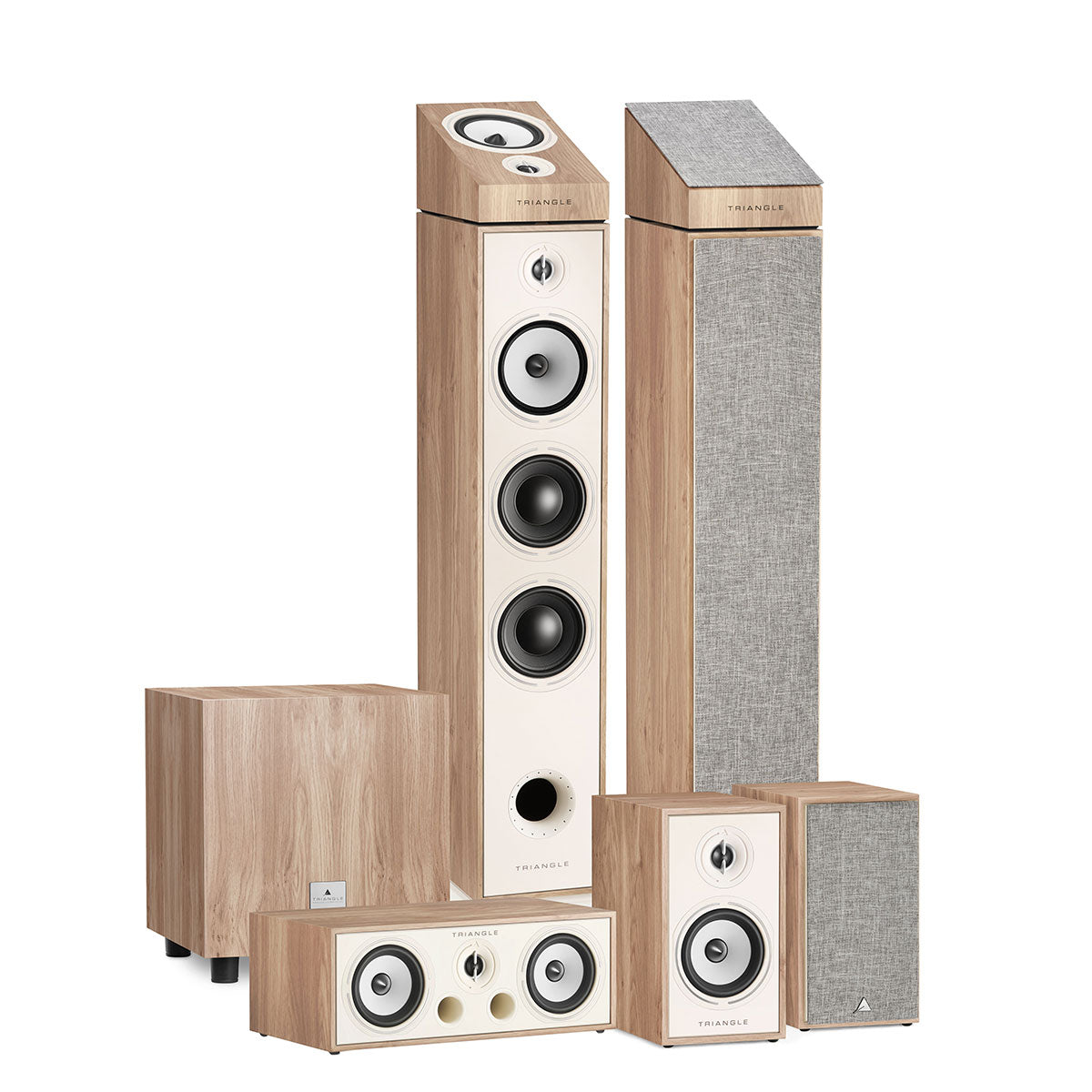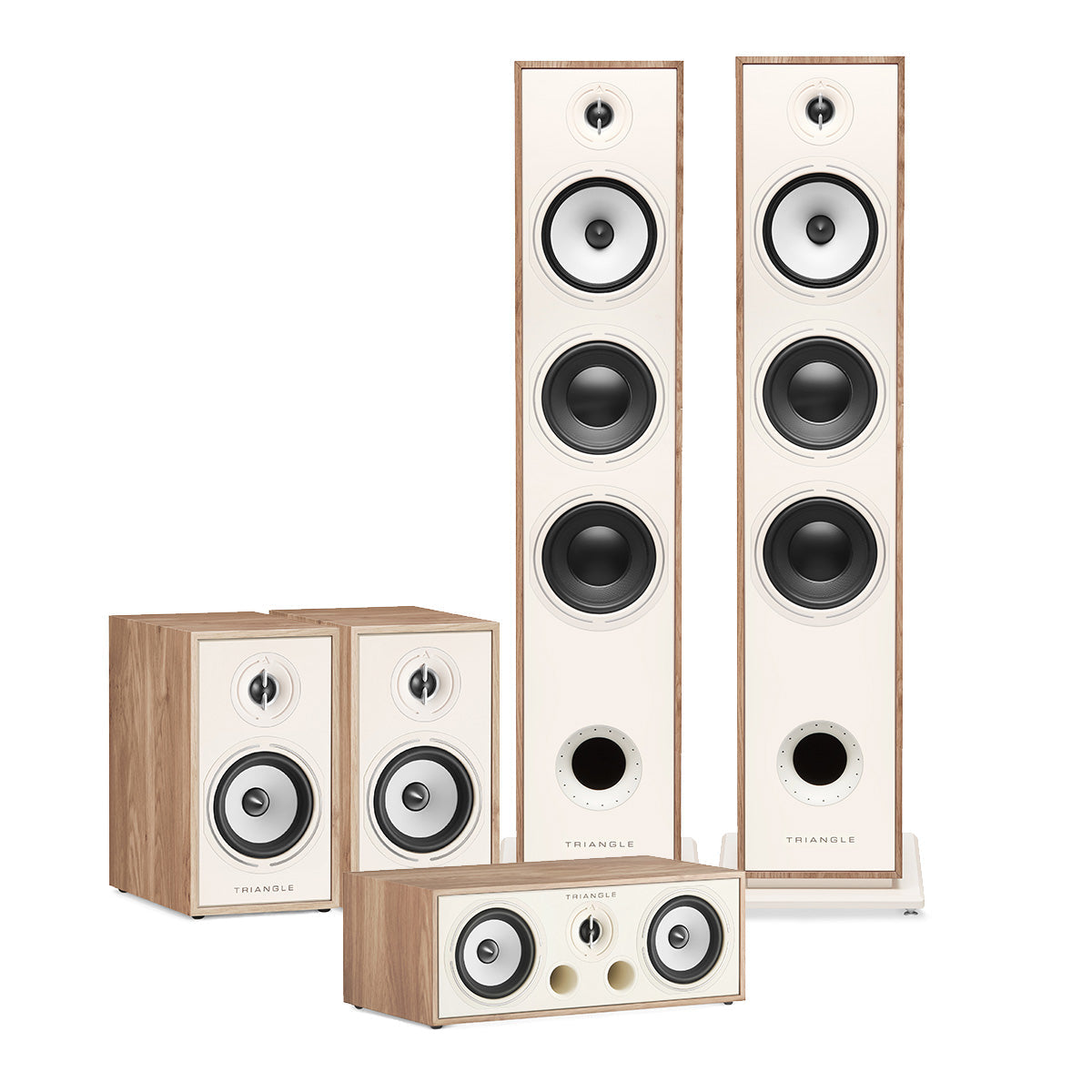BUILD YOUR OWN HOME CINEMA GUIDE
Our advice on building your system step by step
Whether you're a movie buff or a fan of series of all kinds, you're looking for a unique experience with total sound immersion to immerse yourself in your favorite content.
Backed by 40 years' experience in acoustics, TRIANGLE offers home cinema packages to meet every need. Here are a few tips to guide you through your project
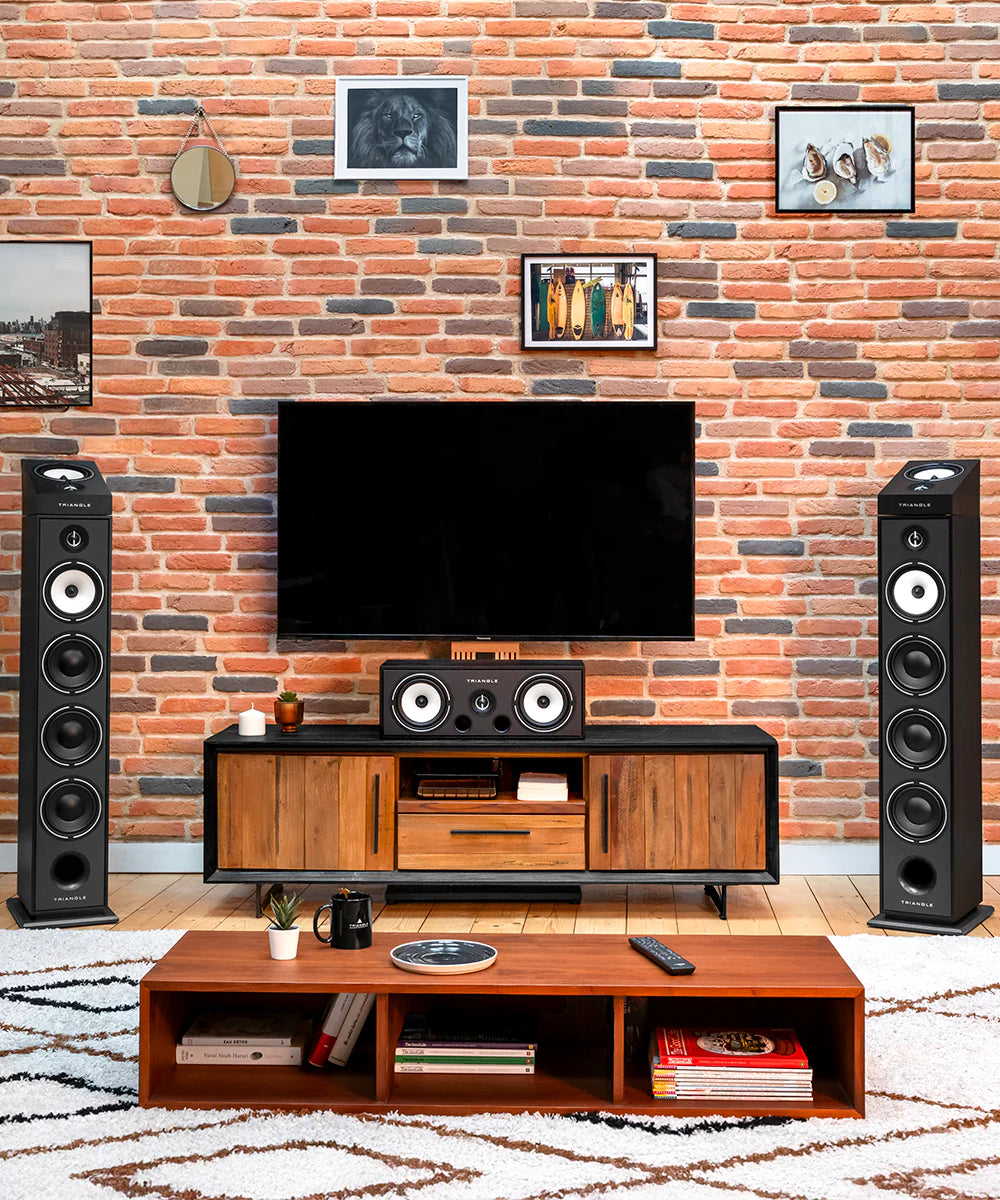
What makes up a home cinema?
Here's what you need to set up your home theater:
- Image : To reproduce images, you can opt for a TV or video projector
- Home cinema amplifier: the nerve center of the installation, it concentrates all the connections (sources, TV and speakers)
- Speakers : they will reproduce all the sounds of your favorite films, series and music.
Types of home cinema speakers

Decoding possible configurations
From the simplest to the most complete, there are a multitude of possible home cinema installations.
- The first number indicates the number of speakers in the horizontal plane of your installation (front, center and surround speakers).
- The second number indicates the number of channels dedicated to the subwoofers.
- The last number defines the number of “3D” channels in your home theater.
In a 7.2.4 configuration, there will be 3 speakers at the front (front and center channels), 2 at the sides and 2 at the rear (7 in all), 2 subwoofers and 4 3D effects speakers.
Here are a few typical set-ups to help you choose, and note that you can upgrade your installation as you go along.
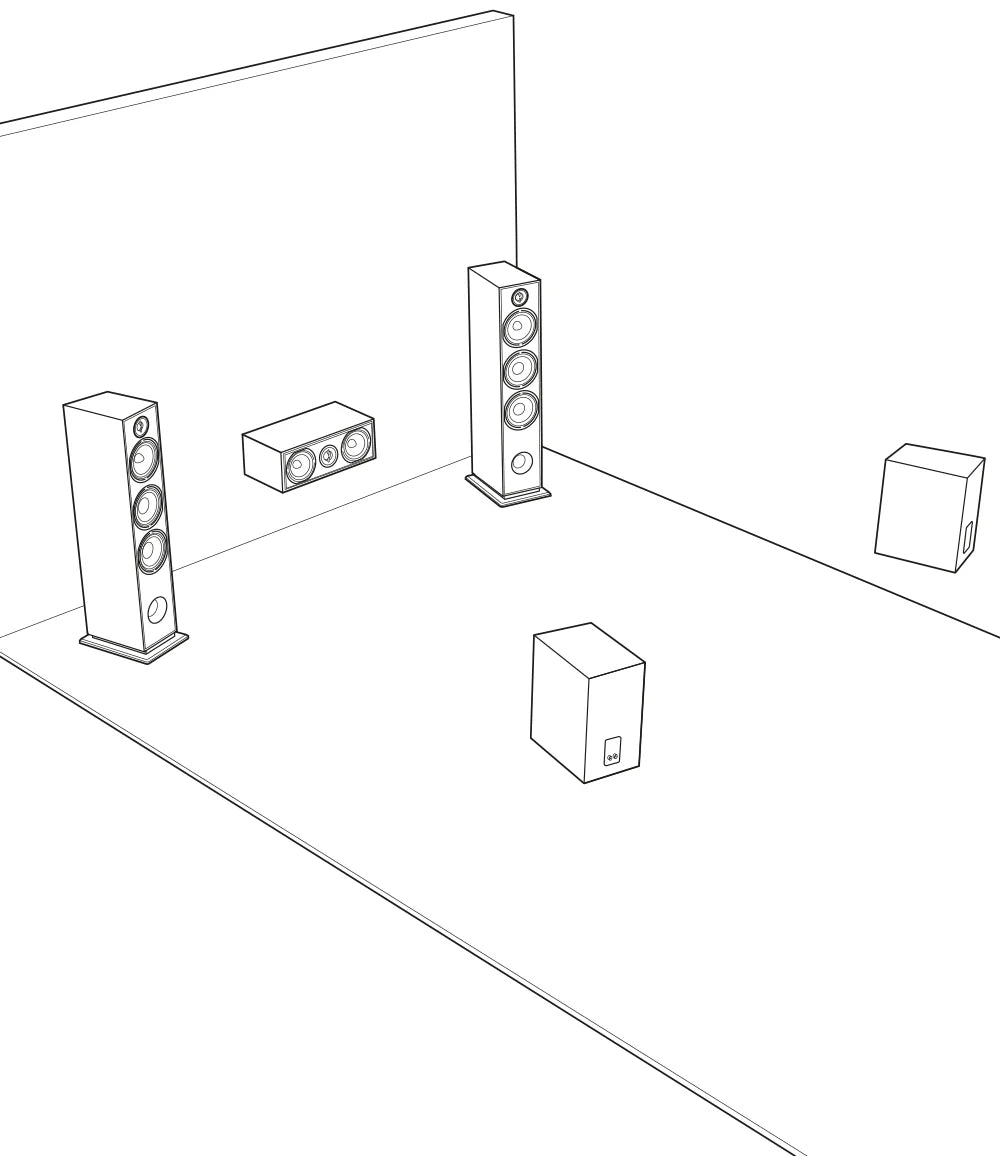
Case #1: System 5.0
Comprising two front speakers, a center speaker and two rear speakers, this set is a classic and a great entry ticket into the world of home cinema.
The spatialization of the sound will give you a wide soundstage, and you'll be able to identify whether a sound is coming from the front, the side or behind you.
This system can be upgraded at a later date with additional components.
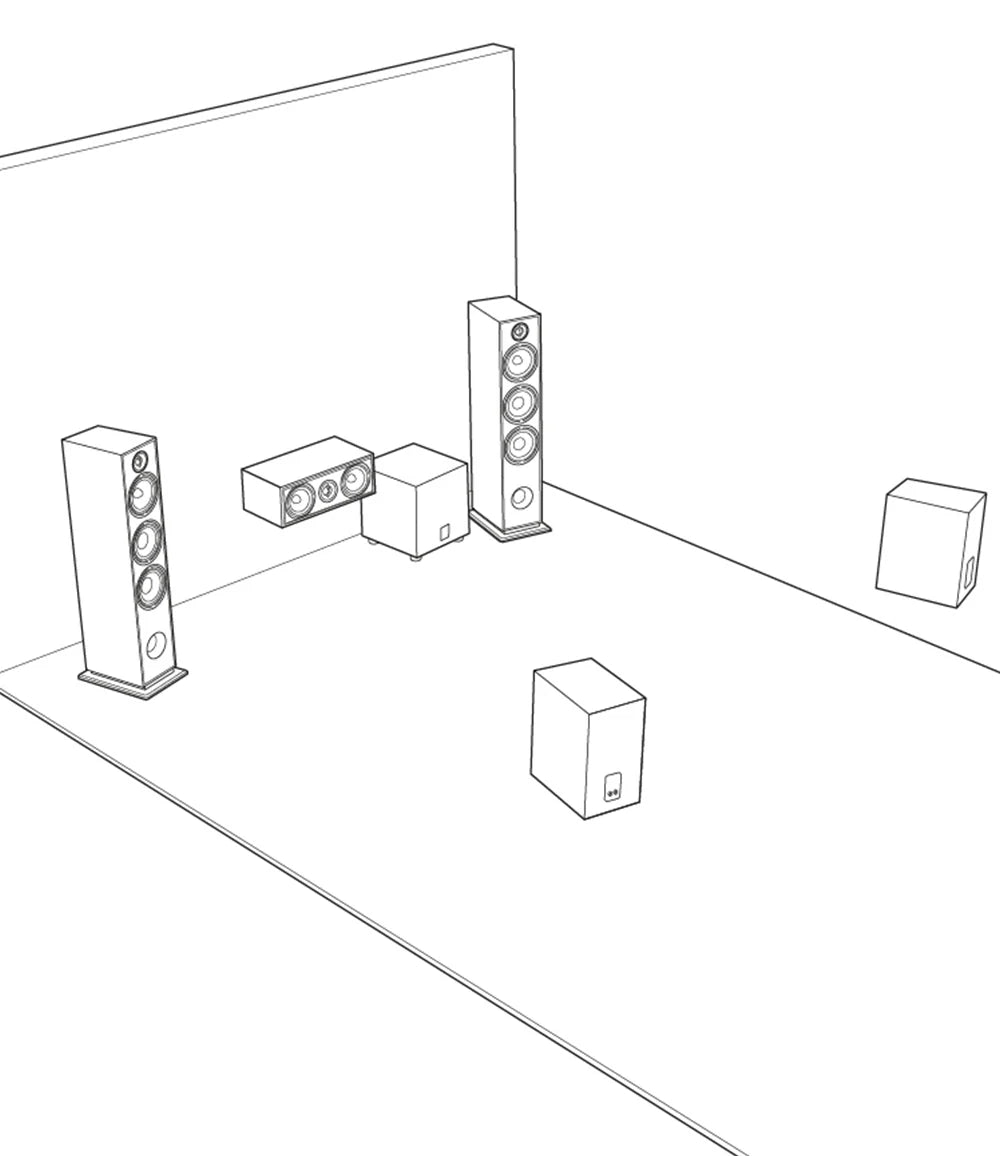
Case #2: System 5.1
To take the home cinema experience a step further, complete your 5.0 installation with a subwoofer.
It will provide deep, powerful bass that will give body and substance to your sound and greatly enhance the immersive effect of your films, especially on spectacular effects such as tremors or explosions.
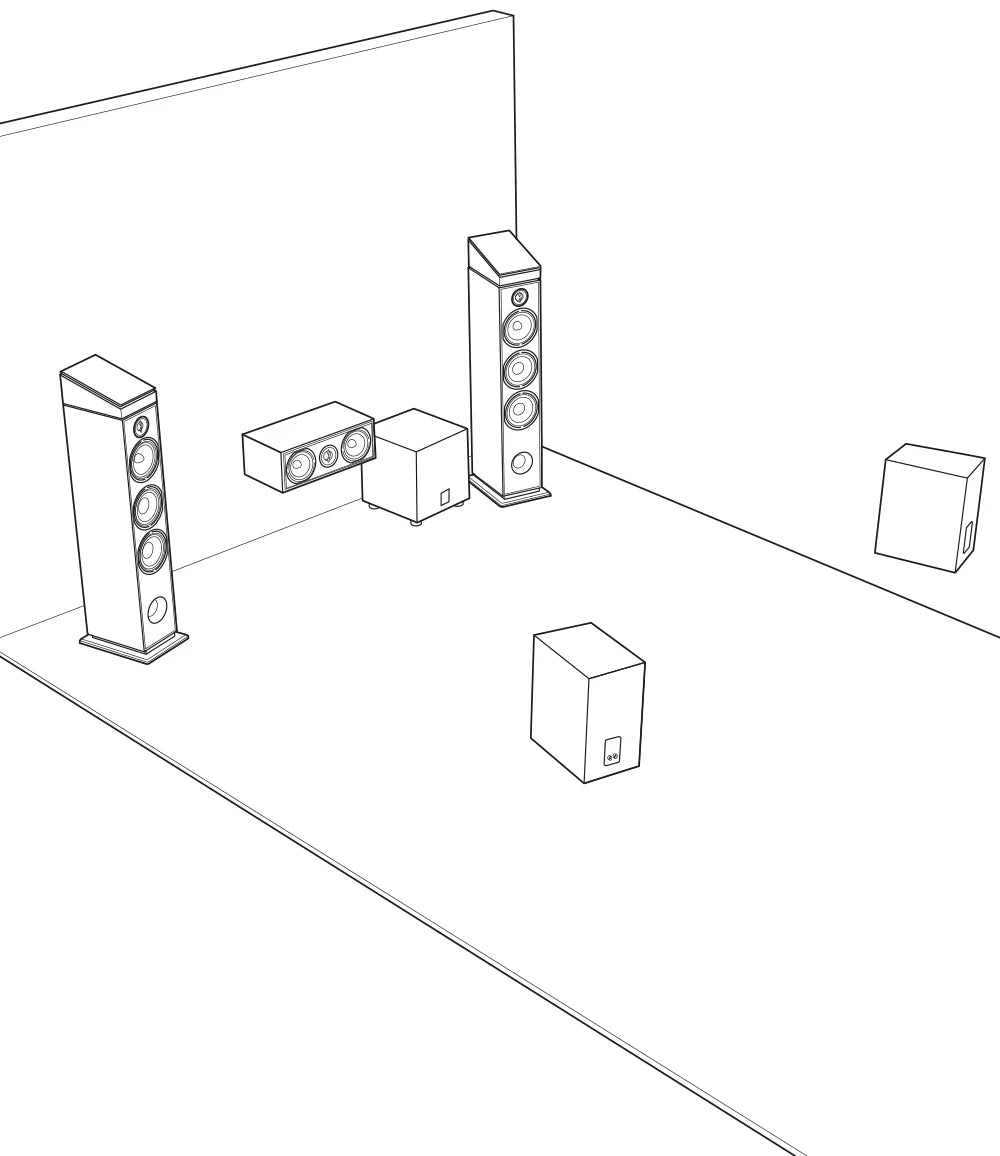
Case #3: System 5.1.2
We complete the 5.1 installation with so-called “3D effects” speakers for greater sound immersion. There are 2 possibilities for such a configuration:
- Choose “Atmos” effect speakers. This type of speaker has been designed to facilitate access to 3D audio content by sitting on top of your speakers. The sound is projected towards the ceiling and reflected back to your listening position.
- Use in-wall speakers that are integrated directly into the ceiling of your room. This is the most convincing solution, but you need to have integrated this project into the room's construction or renovation.
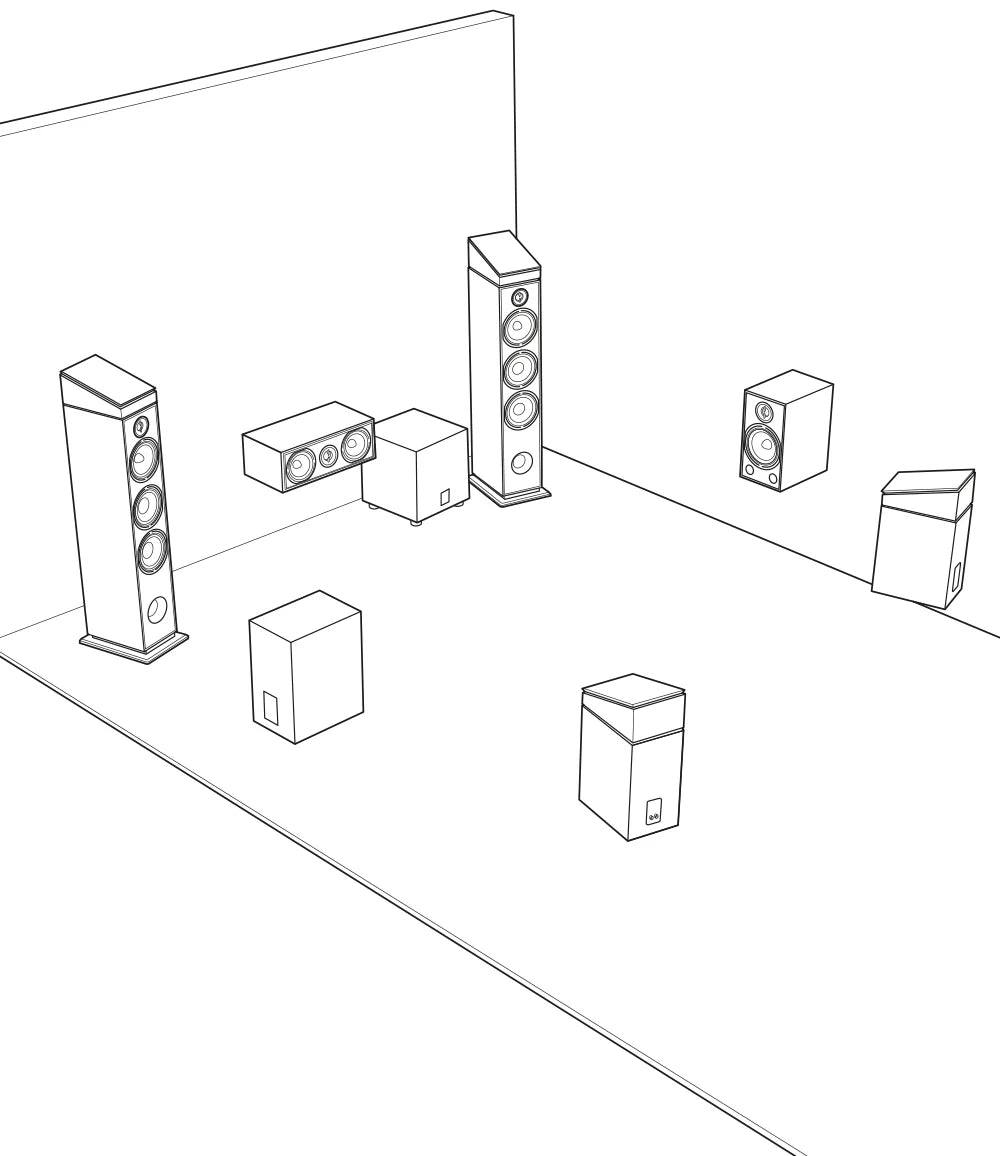
Case #4: System 7.1.4
If you're looking for the ultimate home theater, it's possible to create or upgrade an existing installation to very complete and immersive configurations.
This set includes 7 horizontal speakers (2 front, 1 center, 2 side and 2 rear), 1 subwoofer and 4 effects speakers (2 front and 2 rear).
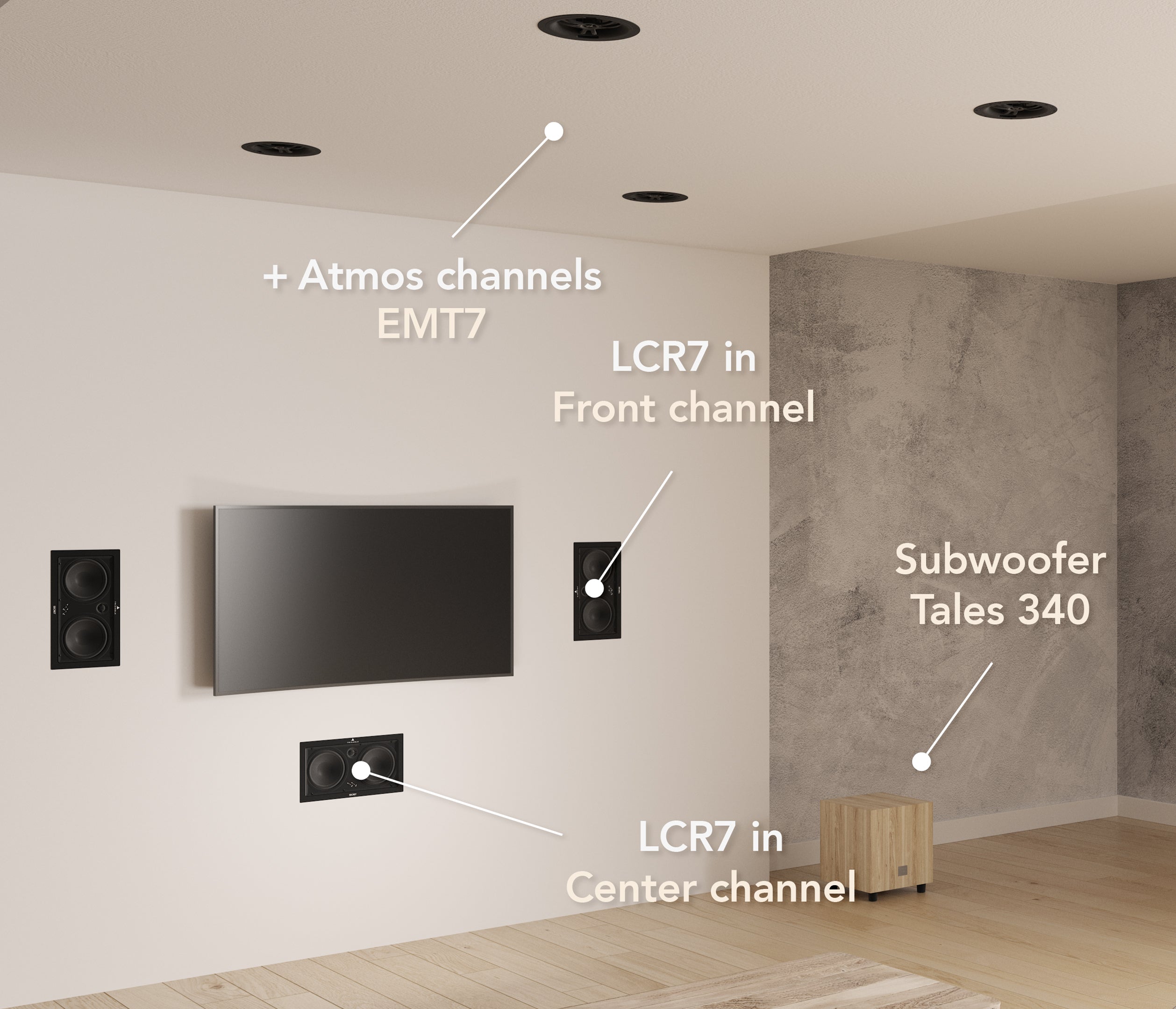
The built-in home cinema alternative
Compose a complete home theater with only in-wall speakers to combine performance and discretion.
There are 3 types of in-wall speakers:
- Hybrid speakers: like the LCR7, which can be used as a center speaker or as a front or surround speaker. They can be flush-mounted in the wall.
- Rectangular speakers: like the IWT7, this format allows them to be used for both front and surround sound.
- Circular speakers: like the EMT7, designed for in-ceiling installation. They can be used for Atmos effects or as back-up rear channels.
Our Home Cinema Bundles

NEED SOME HELP ?
ADVICE AND CUSTOMER SERVICE
Our teams are at your disposal to help you in your purchasing project to find the solution that suits to your needs.
Contact our customer service for personalized follow-up.
To find out more
Here are a few tips and tricks to help you choose your ideal set and make the most of it.
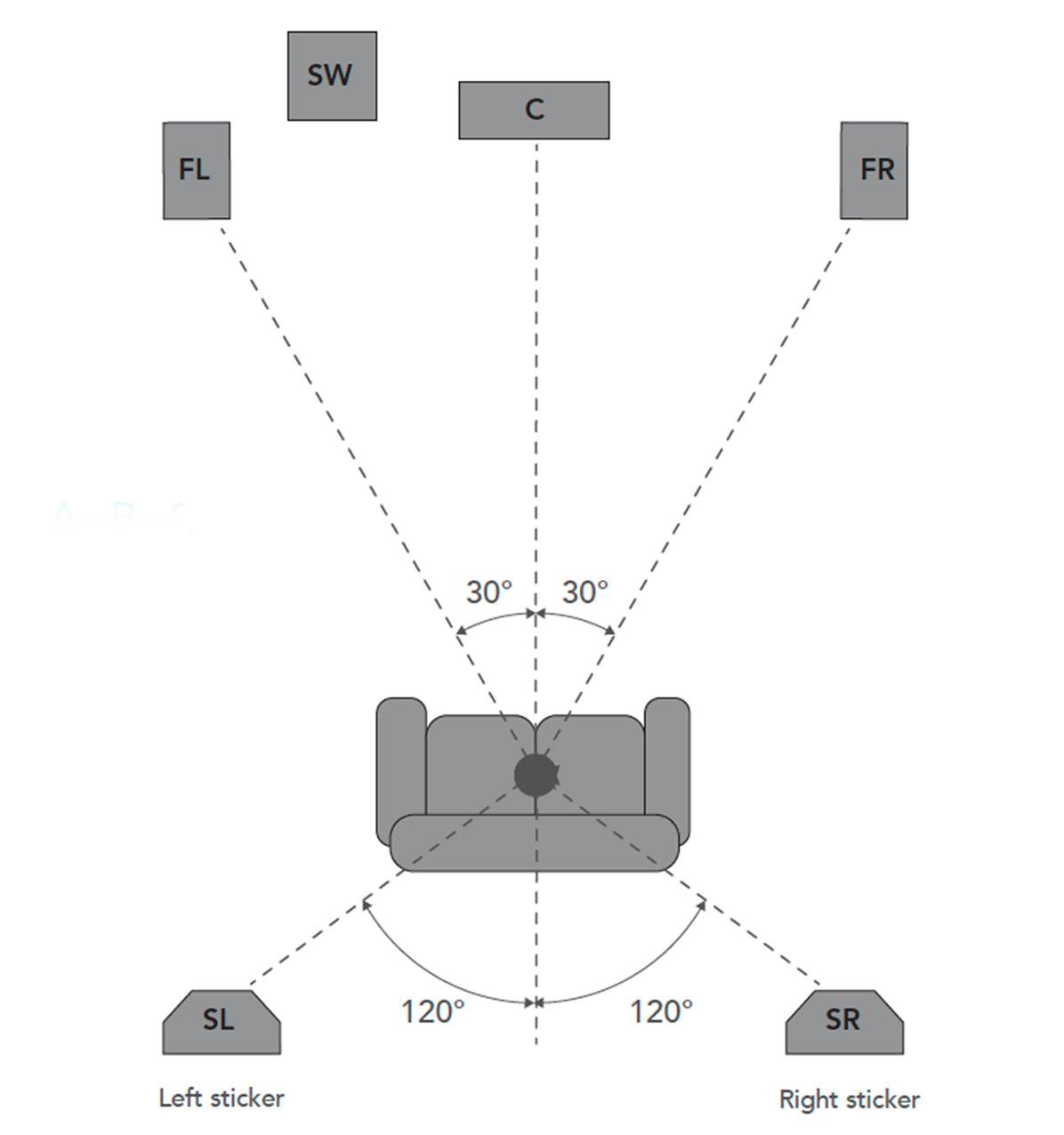
Positioning your speakers
Your listening area should not be too close to the speakers: a minimum distance of 2 meters should be maintained.
The distance between the front speakers should also be 2 meters to guarantee a good stereo effect.the center channel should be placed on the line formed by the two main speakers.the placement of the subwoofer is not critical.
Unless the crossover frequency is above 80Hz, in which case place the subwoofer closer to the front speakers.
Position the rear speakers using speaker stands or a piece of furniture, or by fixing them to the wall with a suitable bracket.
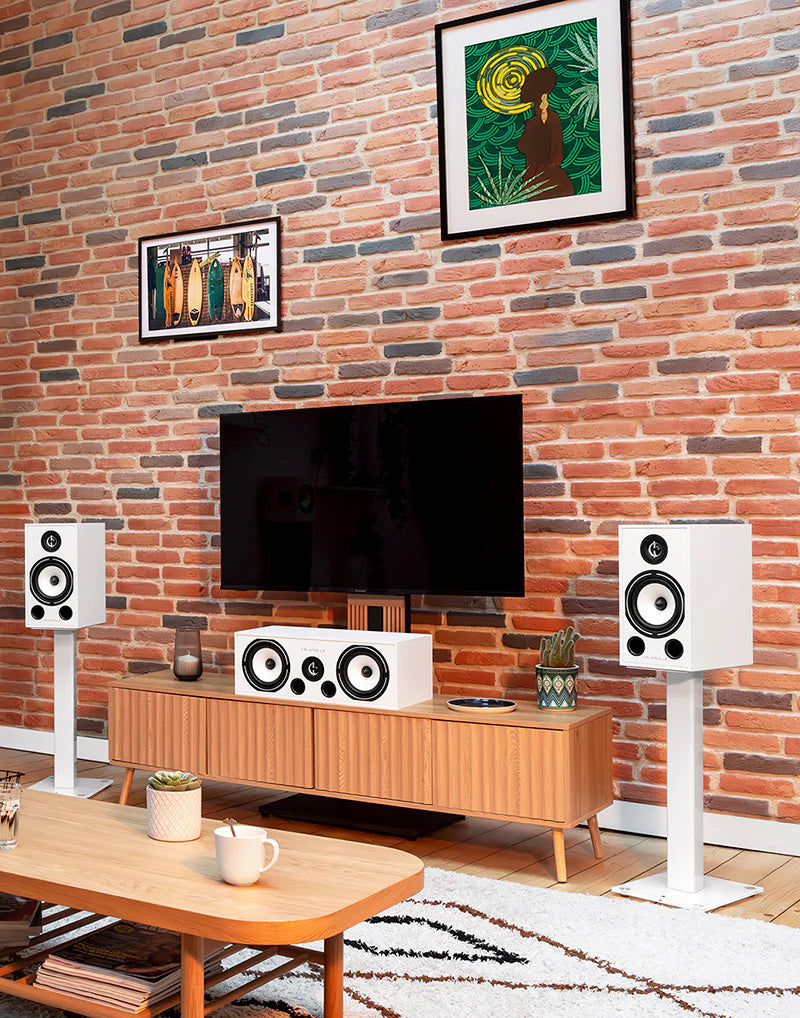
The right speakers for your room
- For small rooms (<20m²) we recommend bookshelf speakers. Thanks to their compact size, they can be integrated into the room's surface area.
- For larger rooms (>20m²), we recommend front-mounted column speakers. This will fill your listening area with high-quality sound.
The addition of a subwoofer will depend on your expectations in terms of low-frequency performance.
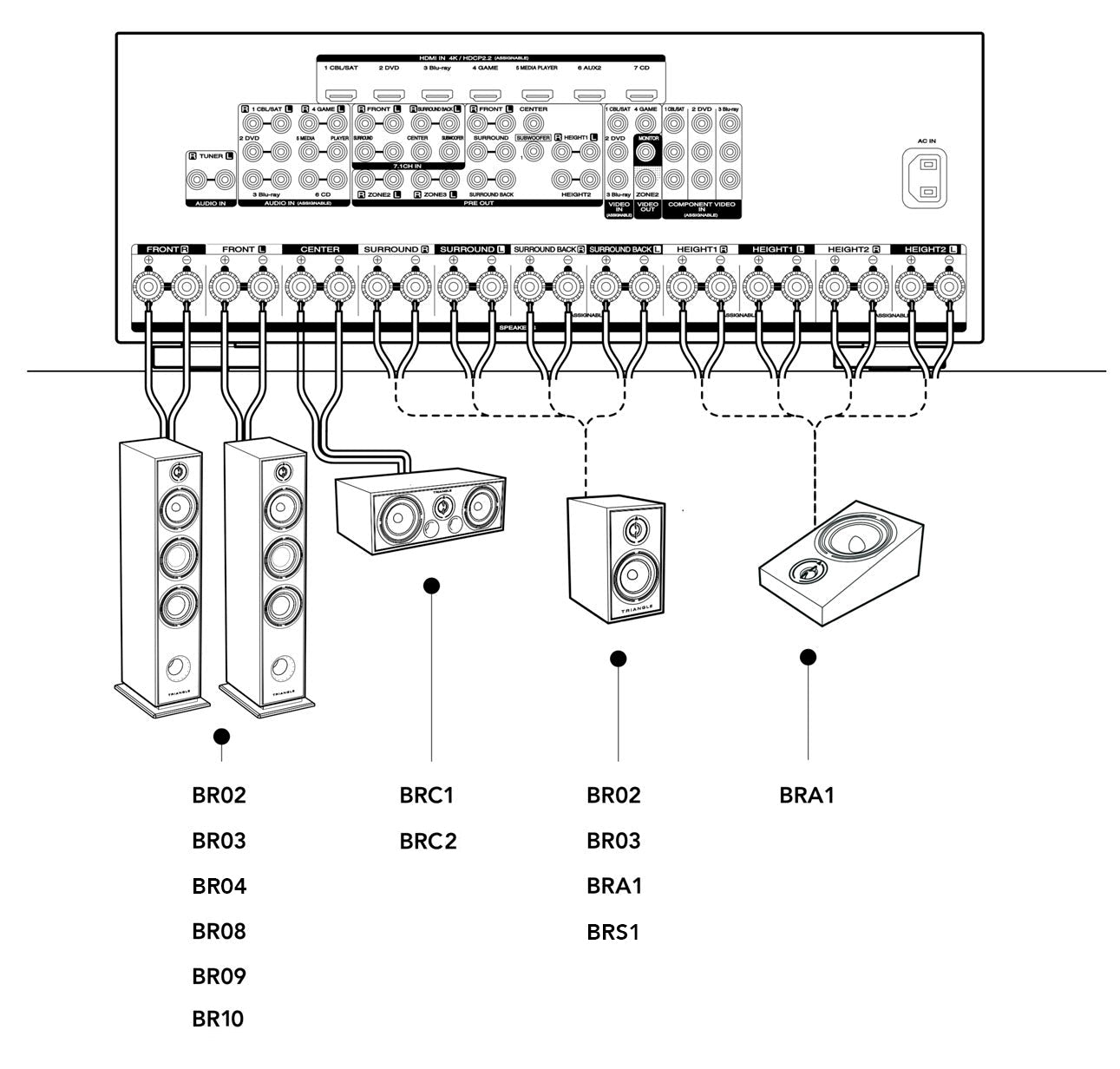
Connecting your speakers
- Use identical lengths of cable for the left and right channels, then strip the ends.
- Unplug your amplifier from the mains when connecting your speakers.
-Please refer to your amplifier manual for speaker connection and assignment according to their position in your room.
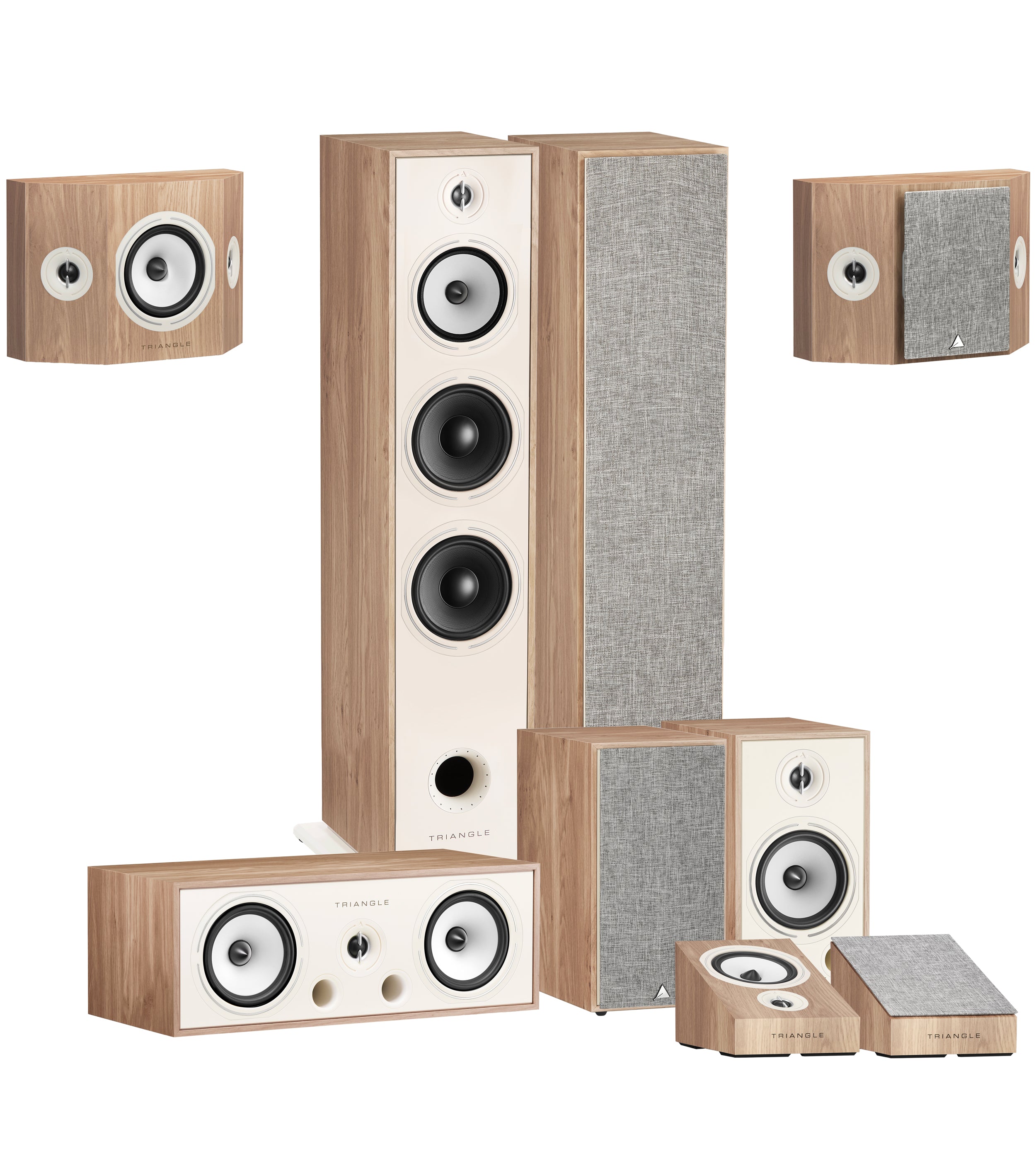
Keep your timbres consistent
To guarantee perfect sonic consistency, we recommend choosing a set from the same range. In addition to coordinated aesthetics, you'll get similar technical performance and an ideal consistency of sound signature.
Choosing a home-cinema speaker package is therefore a wise choice to ensure a homogeneous sound signature.


